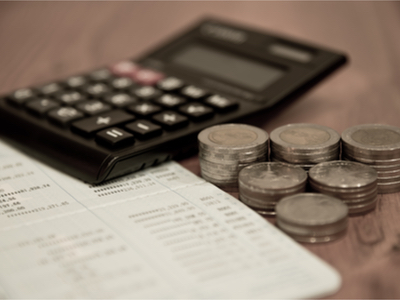 With the Government continuing to ease restrictions on socialising, many of us are welcoming the opportunity to spend more freely.
With the Government continuing to ease restrictions on socialising, many of us are welcoming the opportunity to spend more freely.
In fact, the Bank of England recently predicted consumers are gearing up for a post-pandemic spending spree with households sitting on what’s thought to be the biggest pile of savings on record at the end of last year. Indeed, it’s thought that the final amount collectively saved by UK adults in lockdown is likely to be more than £150 billion.
But, given the impact of the past year on our finances and, for some, earning opportunities it might be wise to approach this newfound freedom and potential to spend, with a degree of caution.
Irrespective of your current financial health, there are some worthwhile considerations needed as we continue to phase out of lockdown this year. A little time spent reassessing your financial priorities can identify ways to help you start or continue saving money. It will also mitigate against overspending.
One of the biggest lessons Covid-19 has taught us is the importance and value in planning for the unexpected. It’s highlighted the need to put aside some ‘rainy day’ cash savings, to provide a financial buffer for emergencies and unusual times like we’ve had this past year. While a large savings account can seemingly provide a sense of security, you should have at least 6 months expenditure in cash.
One way to help top this up is assessing your current standing orders, direct debits, to spot any unused subscriptions you might have gathered during lockdown. For example, gym membership or perhaps some of the clubs and/ or activities for your children could warrant a review.
You may also find you save money if you spend the time reviewing your mobile phone contract or energy and car insurance provider. Seeing if you can get a better deal elsewhere could help you accumulate extra money at the end of the month, which can go into savings for you and your family’s future.
But remember, above all of this you should also take this time to check if there is a more efficient plan for some of this cash than just holding it in savings. Over time, the future spending power of that excess cash will be slowly eroded by inflation which is on the rise again. And it can be easier now that more of us are returning to the high street and planning trips abroad to eat into those savings.
 Why is it so important for women to open up about their finances?
Why is it so important for women to open up about their finances?
As a nation, the UK is notoriously tight-lipped around topics that we find to be uncomfortable or that we label as ‘taboo’.
Our health and relationships regularly tend to top the list of subjects that Brits shy away from discussing, even with our close friends and loved ones. That said, despite efforts to encourage the nation to take an active interest in their finances, money is still an uncomfortable topic for people to discuss openly.
 Financial toolkit tips for women
Financial toolkit tips for women
The pandemic has thrown many people’s finances off balance. Some have found themselves financially better off, but others have found it to be much more challenging.
Financially, women have been more affected by the pandemic. With many reports confirming that women have taken on significantly more domestic chores and family care as a result of COVID-19, and it’s easy to see why.
While there might be an urge to shy away from investing when markets can be volatile, putting excess cash into investments for the long-term can provide greater opportunities for returns over time than idle cash savings. What’s more, feeding any extra cash you might have accrued during lockdown into your investments and/or pension in stages over the coming weeks and months, can help smooth out the daily ups and downs and help towards those bigger life goals that have been put on ice.
Speaking to a financial adviser about drawing up a long-term financial plan to help you achieve important life goals, such as paying off a mortgage, helping your children through a degree or ensuring you have a secure retirement is a great way to solve any concerns or worries you might have. A financial adviser will be able to show you how robust your finances are today and what’s needed in order to secure your future.
While we all hope we are over the worst of the crisis, there is still no way of telling exactly what the future will hold. It’s forecast that the economy is on track to bounce back, however, there’s always going to be value in having a clear financial plan to effectively manage money and ensure you are financially on track to achieve your goals – for this year and the future.
For more information on how you can reshape your finances now that lockdown is lifting, and to understand the benefits of financial planning, see Tilney’s financial resource, Why have a financial plan?
About the author
Zoe Bailey is a Chartered Financial Planner and Director at Tilney. Zoe holds an Advanced Diploma in Financial Planning, an Investment Advice Diploma, and an MA in Economics, and her areas of expertise include pension and retirement planning and advising divorcing couples with their settlements. Zoe is passionate about helping people understand and achieve their financial needs and objectives, regardless of what stage of life they are in or their financial and personal circumstances.
WeAreTheCity covers the latest female centric news stories from around the world, focusing on women in business, careers and current affairs. You can find all the latest gender news here.
Don’t forget, you can also follow us via our social media channels for the latest up-to-date gender news. Click to follow us on Twitter, Facebook, Instagram, and YouTube.







